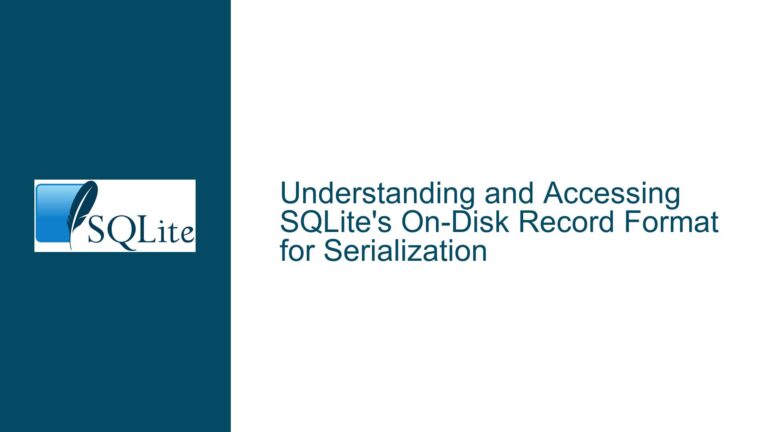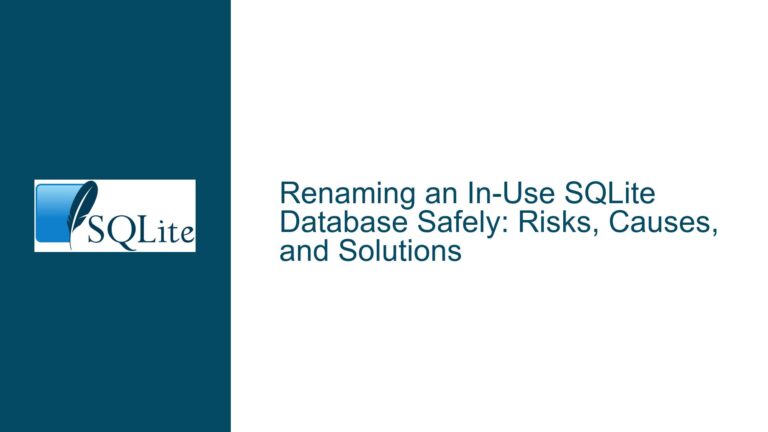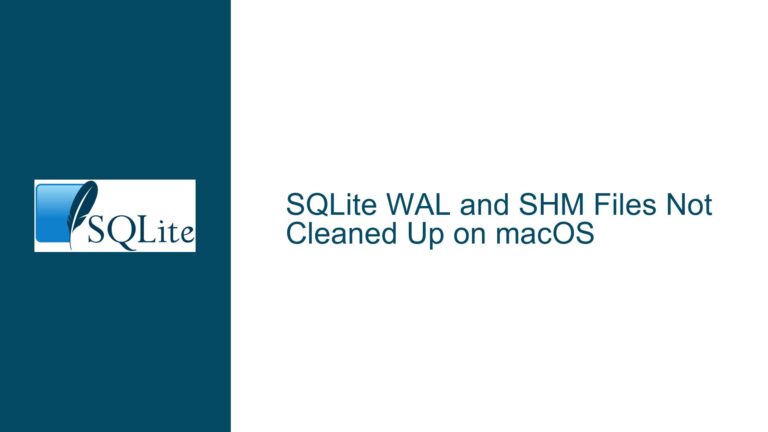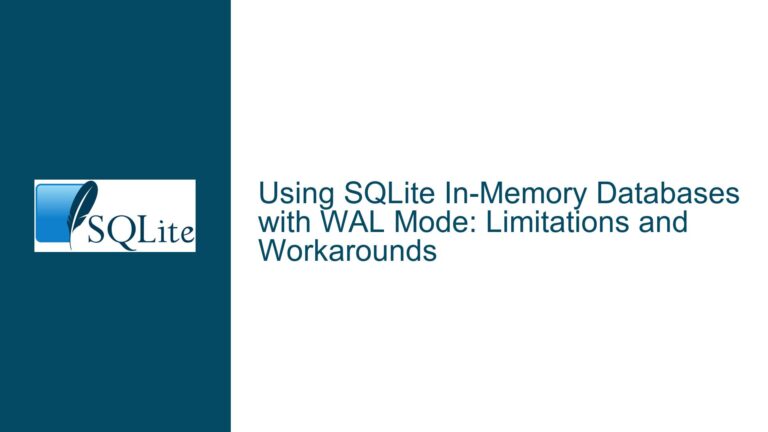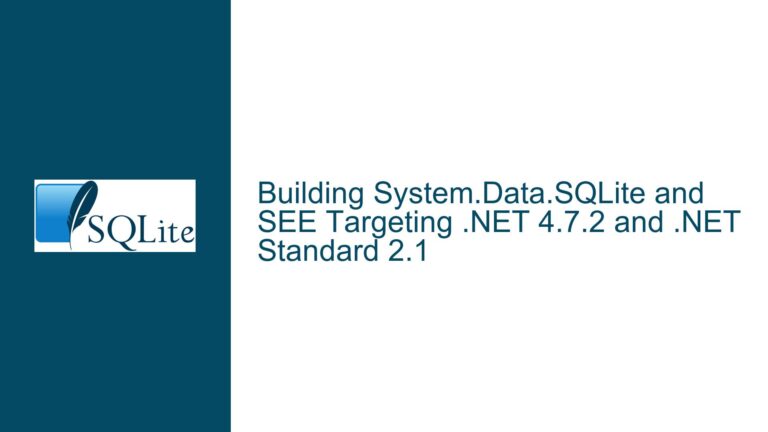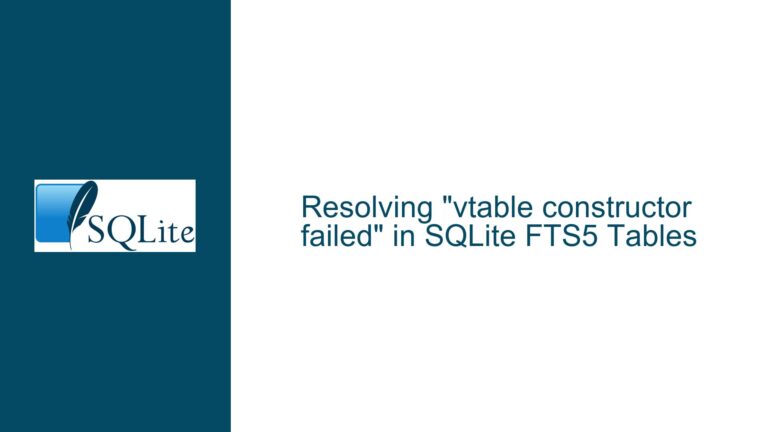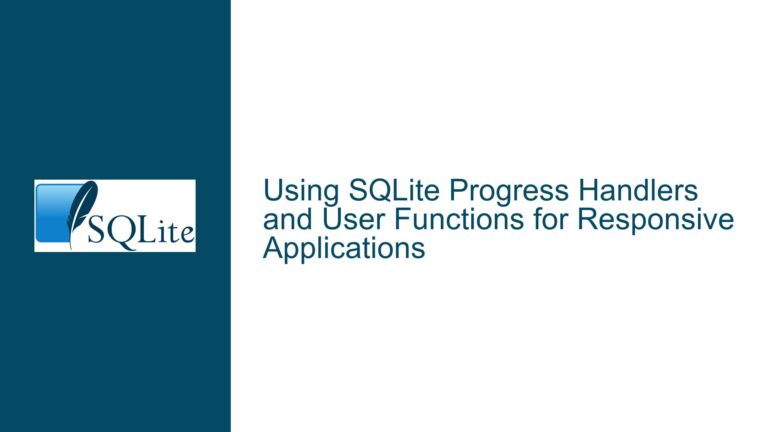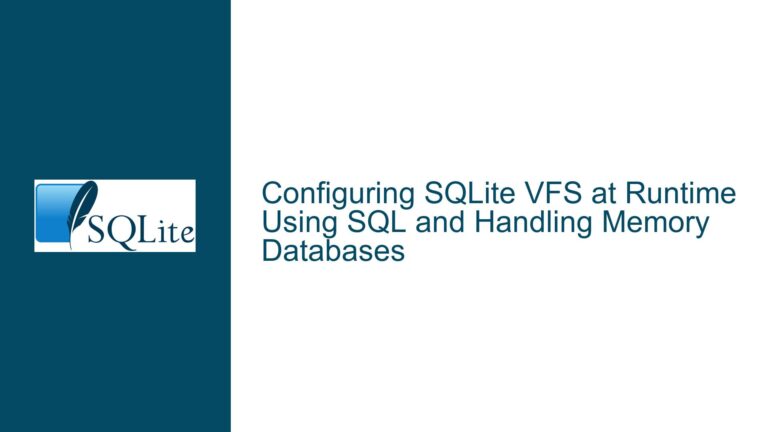and Accessing SQLite’s On-Disk Record Format for Serialization
SQLite’s On-Disk Record Format and Its Stability SQLite’s on-disk record format is a critical component of its database engine, responsible for how data is stored and retrieved from the database file. The format is well-defined and documented at SQLite’s official file format documentation. This stability ensures that databases created by older versions of SQLite can…
